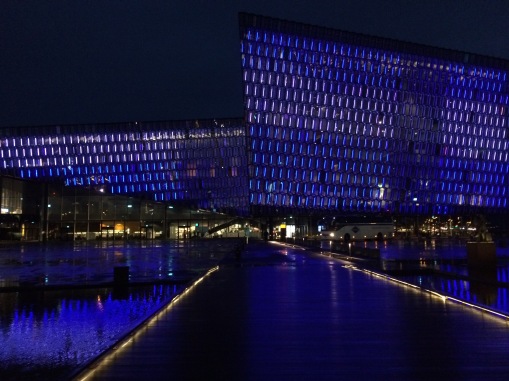
There was also a paper released this week by NASA’s Jet Propulsion Laboratory (JPL), which tracked changes to ice in the Arctic since the late 1950s, concluding that older, multiyear ice was being steadily replaced in the far north by younger, thinner ice which could be more vulnerable to warmer summer temperatures. As with previous years, the Arctic environment, and threats to it, will likely dominate much of the dialogue at this year’s event.
Among the keynote speakers announced for the Arctic Circle this year are former Iceland President Ólafur Ragnar Grímsson, who founded the event in 2013, as well as current Iceland Prime Minister Katrín Jakobsdóttir and Mr Taro Kono, Foreign Minister of Japan. Japan’s Arctic scientific interests will also be discussed at a panel organised by the Tokyo-based Arctic Challenge for Sustainability (ArCS) project. Also among the keynote speakers will be US Senator Lisa Murkowski (R-Alaska) and Ms Ségolène Royal, France’s Arctic and Arctic Ambassador. Mr Sam Tan Chin Siong, Singapore’s Minister of State, will also hold a standalone dialogue on his country’s unique Arctic role.
China is also well-represented at this year’s conference, including the former chair of Chinese energy firm Sinopec, Mr Fu Chengyu, Mr Huigen Yang, Director of the Shanghai-based Polar Research Institute of China (中国极地研究中心), and China’s Arctic Ambassador, Mr Gao Feng. As China released its first governmental White Paper on Arctic policy in January this year, and is seeking to be accepted as a polar partner [pdf] in the region, there will also be discussion on the role of the Arctic within Beijing’s swiftly developing Belt and Road trade route networks.
The European Union, which will likely be making another bid to join the Arctic Council as a formal observer next year, will be represented by Mr Karmenu Vella, European Commissioner for Maritime Affairs and Fisheries, as well as a panel on EU scientific projects in the region. Also on the subject of the EU, Scotland, which this month called for a second referendum on the ‘Brexit’ process before its scheduled competition next year, given strong Scottish support for remaining in the Union, is also well represented at the Arctic Circle this year. The Scottish government of Premier Nicola Sturgeon has been seeking to burnish its Arctic credentials in recent years, will be represented by Ms Fiona Hyslop, Member of the Scottish Parliament and Cabinet Secretary for Culture, Tourism and External Affairs.
Among the scientific areas under discussion this year are combatting pollution, (including the growing danger of contamination from plastic refuse), aquaculture, sustainable energy including wind power, space science, changes in the Arctic cryosphere, and regional green technology. Russia’s Arctic scientific prowess will be especially highlighted this year, including via a panel hosted by the Russian Academy of Sciences [In Russian] (Росси́йская акаде́мия нау́к) in St Petersburg.

OtC, in addition to being represented on a panel about Arctic identity-building, will also be featuring reports from the Arctic Circle over the next week.